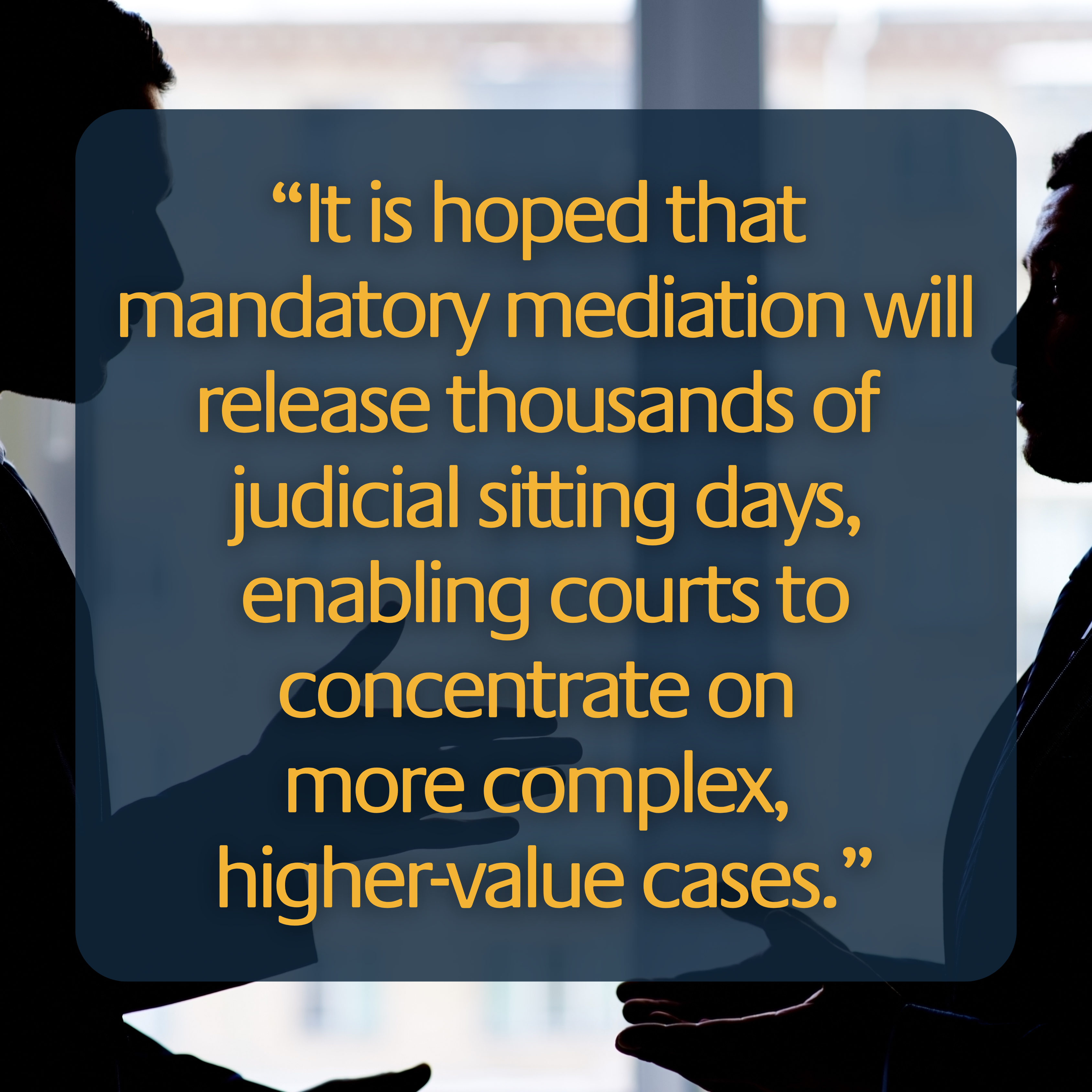Mandatory Mediation Pilot Extended to Low-Value RTA Claims
20 October 2025
The mandatory mediation pilot for small claims, launched in May 2024, has now been extended to include low-value Road Traffic Accident (RTA) claims under £10,000.
This change will divert a significant number of motor-related disputes - often a source of court backlog - into the Alternative Dispute Resolution (ADR) process.
The implications for insurers, claimant firms, and the broader claims ecosystem are substantial, offering both notable benefits and drawbacks.
Advantages
· Court Decongestion: The initiative’s foremost objective is to improve efficiency. Low-value RTA disputes absorb extensive judicial resources. It is hoped that mandatory mediation will release thousands of judicial sitting days, enabling courts to concentrate on more complex, higher-value cases.
It remains uncertain whether this objective will be fully realised, particularly given the apparent absence of plans to appoint additional mediators which raises concerns that the current backlog may shift from the courts to the ADR domain.
· Cost Reduction: Facilitating prompt settlements through complimentary, one-hour telephone mediations can significantly reduce litigation expenses. Even in small claims, where cost recovery is limited, the preparatory work and attendance required for trial impose considerable administrative burdens. Resolving claims within weeks, as opposed to protracted periods of up to a year and beyond, delivers substantial savings on indemnity spend and operational overheads for insurers and their representatives.
· Expedited Resolution and Certainty: Mediation sessions are proposed to be scheduled within 28 days following the filing of a defence, providing parties with greater certainty and a potentially faster finality compared to current court timelines.


Disadvantages
· Suitability, Specialist Knowledge, and Access to Justice: Despite the clear benefits to court capacity, it remains to be seen whether a one-hour phone call with a general mediator is sufficient to tackle technical points often raised in matters.
Taking credit hire as an example, the main battle ground in the majority of disputes revolves around the issue of impecuniosity. Defendants may be reluctant to settle matters without first having disclosure of the financial evidence in support of such a pleading, and as disclosure will come after mediation, this to some extent may render the entire process redundant without a change to the rules. If, for example, a claimant who pleads to be impecunious were required to disclose evidence in support with their Particulars of Claim (as is the case with medical evidence in support of a claim for PSLA), this may give the mediation process more chance of being meaningful means of achieving a resolution rather than another box to simply tick on the path towards an inevitable trial.
· Limited Sector-Specific Expertise: Mediators may lack expertise in the detailed legal and factual aspects of motor claims particularly those involving credit hire. This gap raises doubts about the ability of mediators to effectively guide parties toward settlement.
· Compulsion and Access to Justice: Imposing compulsory mediation brings into question fundamental principles of access to justice. Could litigants feel coerced by mediation into settling to circumvent further procedural obstacles, rather than having their disputes adjudicated by a judge?
· Potential Procedural Delays: In instances involving resistant parties or intricate issues unsuited to brief mediation, the mandatory process may simply introduce another procedural step, thereby extending the overall litigation timeline and potentially increasing costs if settlement occurs closer to trial.
The extension of the mandatory mediation pilot to encompass low-value RTA claims particularly signifies strong endorsement of ADR as the preferred mechanism for minor civil disputes. The scheme presents an opportunity for parties to achieve long-awaited efficiencies and cost savings by expediting the resolution of routine claims. However, the pilot’s sustained success will depend on its adequacy in addressing genuinely complex matters.
It remains to be seen whether the process will merely redirect claims into a medication system and be another step in the process or be a powerful tool in resolving matters fairly and efficiently.
















